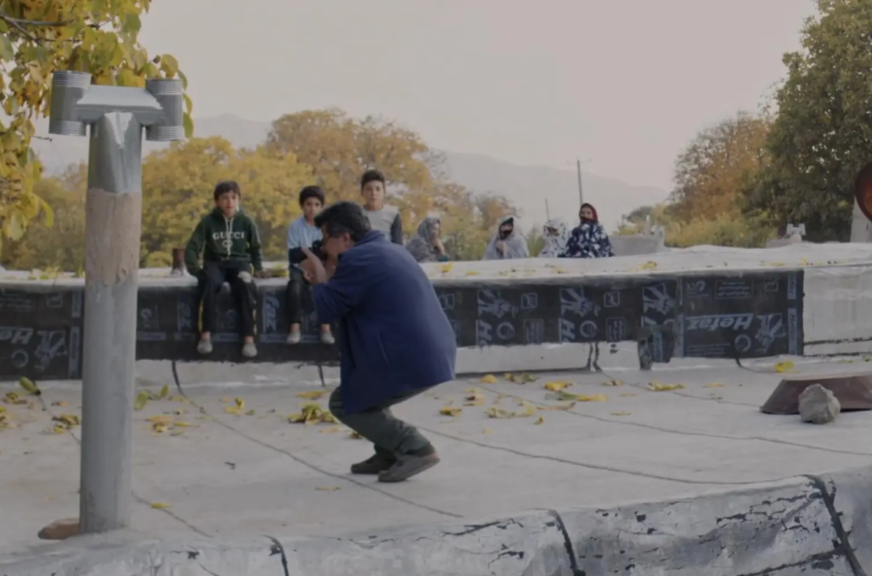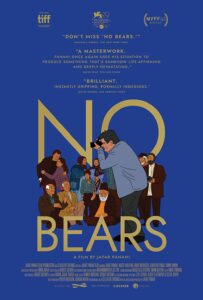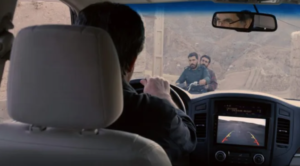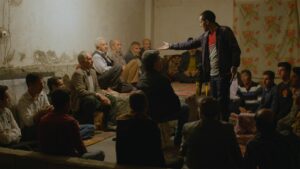No Bears aka Khers Nist | Written and Directed by Jafar Panahi | 106 min | ▲▲▲▲△ | Carbon Arc Cinema
A version of this review first appeared on FITI during the Toronto International Film Festival in September 2022.
On a recent episode of the podcast I cohost with Stephen Cooke, LENS ME YOUR EARS, we watched and talked about a number of Iranian films, including The White Balloon and Taxi, by activist filmmaker Jafar Panahi.
His thematic concerns tend to be the struggle of the average Iranian citizen to live their lives as freely as possible despite conservative social and religious pressures — concerns that have seen Panahi arrested and detained in his home country. If recent reports are to be believed, he’s now out of prison.
As he’s done in the past, Panahi blurs the line between fiction and docudrama. No Bears tells two parallel stories. In one, Panahi plays himself attempting to shoot a film remotely, giving directorial instructions via Zoom to actors and crew in Turkey. The cinematic story is about a couple looking to escape Iran, but the required papers are difficult to secure for both at the same time, causing strife between them. We also get a touch of life on set with the filmmaker at an odd remove.
Meanwhile, Panahi unwittingly stokes controversy in the remote village he’s living in to avoid the Iranian authorities when the local sheriff demands he hand over a photo he took of a young couple — she’d been promised as a bride to one family when she was born, but she may be planning to elope with another man, which the photo is said to prove. Panahi says he doesn’t have the photo.
By inserting himself as a character into these stories, Panahi presents himself as a fall guy for the convoluted bureaucratic problems in his country — nothing is ever simple under the boot heel of authoritarian governmental laws or religious edicts. His slightly befuddled persona is charming even as it’s sometimes a challenge to piece together his intent.
With Panahi in the foreground, he’s forced to be at a reach from the drama he’s depicting. It means we sometimes learn things second or third hand, like we’re witnessing events through a distant windscreen.
It is a little alienating, but then, maybe that’s his intent all along as an artist who’s showing us something from his lived experience, a fish-out-of-water in his own home. The narrative will certainly require unpacking post-screening, so be sure you see it with a trusted cinepanion.













